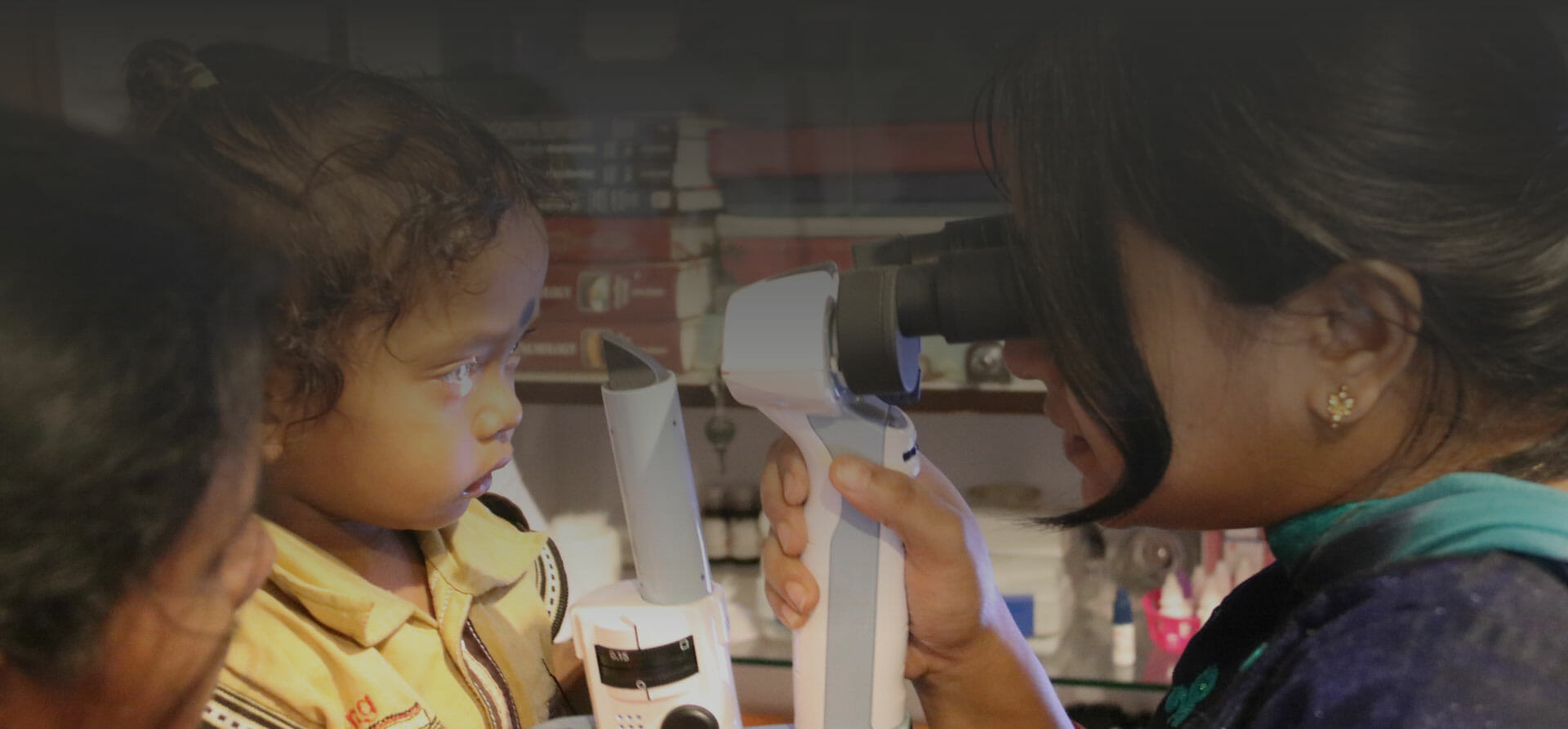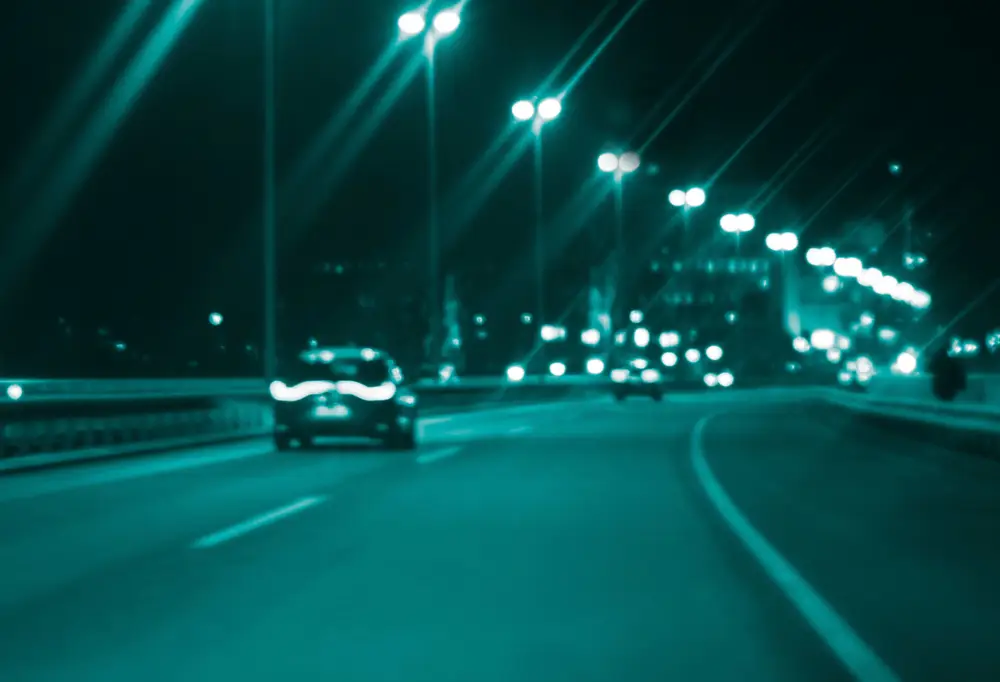Ever squinted at the blur of streetlights or struggled with the glare from oncoming cars during a night drive after LASIK surgery? You’re not alone. Many experience night vision problems after LASIK, and while this can be concerning, there are ways to manage and often improve these conditions. So, whether you’re considering LASIK or are adjusting post-surgery, understanding these aspects can help you achieve better night vision and overall visual satisfaction.
Contents
Common Night Vision Problems After LASIK

After LASIK surgery, some people find that their night vision isn’t as clear as before. Here are the main issues they might notice:
- Glare: This makes lights look too bright, which can be distracting, especially when driving at night.
- Halos: These are circles of light that appear around lamps and headlights, making it hard to see clearly in the dark.
- Starbursts: Similar to halos, but the light spreads out in spikes or rays from light sources, complicating night vision.
- Reduced Contrast Sensitivity: It becomes difficult to tell the difference between dark and light areas, which can make night driving or moving around in low light tricky.
These problems happen because the surgery changes the shape of the cornea, the clear front part of the eye. Sometimes, the new shape can scatter light differently, leading to these night vision issues. Understanding these problems can help find ways to manage them better.
Factors Contributing to Night Vision Issues After LASIK
Several factors can influence the likelihood of experiencing night vision problems after LASIK surgery. Understanding these factors can help in assessing the risks and preparing for potential outcomes:
- Pre-existing Prescriptions: Individuals with higher degrees of myopia (nearsightedness) or hyperopia (farsightedness) before LASIK are more prone to night vision issues post-surgery. The more correction needed, the higher the risk of slight imperfections in the corneal reshaping, which can affect how light is focused at night.
- Pupil Size: Larger pupils tend to expand beyond the area corrected by the LASIK procedure in low light, leading to light rays being focused improperly. This mismatch can result in visual disturbances like halos and glare during night driving or in dim environments.
- Precision of Laser Correction: The accuracy of the laser reshaping the cornea is crucial. Imperfections in the laser treatment or slight misalignments can leave small irregularities on the cornea’s surface, which scatter light and contribute to visual artifacts like starbursts and halos.
- Healing Variabilities: Individual differences in how people heal can affect the outcome of LASIK surgery. Variations in corneal healing can lead to irregularities that affect night vision.
- Age: Older patients may experience more pronounced night vision problems after LASIK due to the natural aging of the eye and changes in lens clarity.
By considering these factors, potential LASIK candidates can better understand their risk of experiencing night vision issues after surgery.

Your Help Can Make a Difference!
With Every Donation, You’re Gifting a LASIK Surgery To Someone in Need!
Post-LASIK Care to Enhance Night Vision
Proper post-operative care after LASIK surgery is crucial for enhancing night vision and minimizing potential visual disturbances. Here are some effective care tips to help manage and potentially improve night vision issues:
- Use Prescribed Eye Drops: These may include antibiotics to prevent infection and steroid drops to reduce inflammation. Keeping the eyes well-lubricated with artificial tears can also help maintain corneal smoothness and clarity.
- Avoid Harsh Lighting Environments: In the weeks following surgery, try to avoid direct exposure to very bright lights and harsh environments. This helps the eyes to adjust gradually without straining the newly corrected vision.
- Wear Sunglasses: Protecting your eyes from UV light and brightness by wearing sunglasses during the day can help manage light sensitivity and reduce the risk of glare and halos when transitioning to darker settings.
- Follow Up Regularly With Your Eye Care Provider: Attend all scheduled post-operative appointments. These follow-ups allow your eye doctor to monitor your healing progress and respond to any emerging issues with your night vision.
- Adjust Your Indoor Lighting: Use softer, adjustable lighting at home, especially in the evening. This can help your eyes adjust more comfortably to varying light levels without causing strain.
- Limit Night Driving Initially: If possible, avoid driving at night in the early recovery phase, especially if you’re experiencing significant glare or halos. As your vision stabilizes, these issues typically lessen.
- Nutritional Support: Incorporating foods rich in omega-3 fatty acids and antioxidants can support eye health. Nutrients like fish oil, vitamin C, vitamin E, and zinc can contribute to better overall eye function and aid the healing process.
By adhering to these post-LASIK care tips, you can help enhance your night vision and ensure a smoother recovery, while also reducing the likelihood of persistent night vision problems.
Treatment Options for Persistent Night Vision Issues After LASIK

For individuals who continue to experience night vision issues after LASIK surgery, there are several treatment options available to help manage and potentially resolve these problems:
- Enhancement Surgeries: If night vision issues are linked to residual refractive errors, a follow-up LASIK enhancement surgery might be recommended to fine-tune the initial correction.
- Special Eyewear: Glasses with anti-reflective coatings or specially tinted lenses can be used to reduce glare and improve visual clarity at night.
- Wavefront-Guided Treatments: For more complex irregularities, wavefront-guided retreatments can be performed. This advanced technology creates a precise map of the eye, targeting subtle optical imperfections that contribute to night vision difficulties.
- Contact Lenses: In some cases, therapeutic contact lenses, including rigid gas-permeable lenses, can help reshape the cornea and improve the focus of light entering the eye.
Consulting with an eye care specialist is crucial for determining the most appropriate treatment based on the specific symptoms and severity of night vision issues experienced post-LASIK.
Conclusion
Are you experiencing night vision issues after LASIK surgery? Don’t let these problems linger and affect your quality of life. It’s time to prioritize your eye health! At the Best Eye Hospital in India, our specialized team is ready to assess and address your specific concerns with advanced treatment options. So, take the first step towards clearer night vision by booking your free appointment today. Call us at +91 9711116605 and let us help you see the night in a new light!
